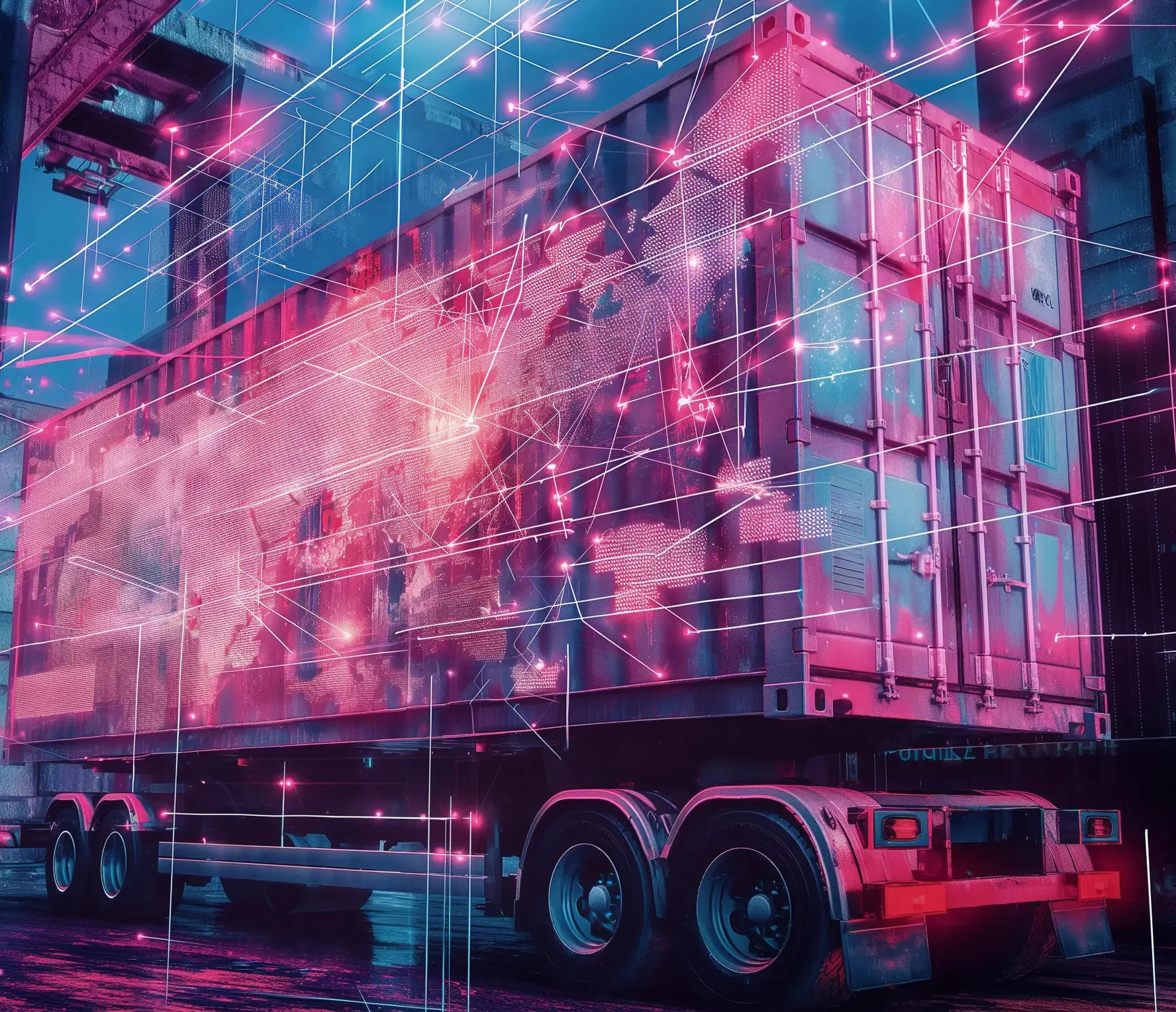Blockchain technology is significantly impacting global supply chain management. Originally developed as the foundation for cryptocurrencies, blockchain’s distributed ledger system is now being applied to track, manage, and secure the flow of goods worldwide. This technology offers potential improvements in transparency, efficiency, and security for supply chains across various industries.
The decentralized nature of blockchain creates an unalterable record of transactions, addressing long-standing challenges in supply chain management such as lack of transparency, inefficiencies, and vulnerability to fraud. As blockchain initiatives gain traction, they are being implemented in diverse sectors, from food production to diamond mining, potentially transforming how global trade operates.
The Blockchain Revolution in Supply Chains
To understand the revolutionary potential of blockchain in supply chain management, we must first grasp the intricate dance of goods, information, and finances that defines modern global trade. From the moment a product is conceived to its final delivery to the consumer, it passes through a complex network of suppliers, manufacturers, distributors, and retailers. Each step in this journey involves multiple transactions, verifications, and hand-offs—a process that inefficiencies, lack of transparency, and vulnerability to fraud have traditionally plagued.
Enter blockchain. This technology offers a new paradigm for managing these complex interactions, creating a secure, transparent, and efficient system for tracking and managing supply chain activities. Here’s how it works: As a product moves through the supply chain, each transaction or movement is recorded as a ‘block’ of data. Multiple participants in the network then verify this block before being added to a chain of previous transactions, creating an unbroken, tamper-proof record of the product’s journey.
This seemingly simple process has far-reaching implications. For the first time, all stakeholders in a supply chain—from producers to consumers—can have access to the same verified information about a product’s history. There will be no more conflicting records, no more opaque processes, and no more uncertainty about a product’s provenance or authenticity.
Unlocking Transparency and Traceability
One of the most significant benefits of blockchain in supply chain management is its ability to enhance transparency and traceability. In an era where consumers are increasingly concerned about the origin and journey of their products, blockchain offers a level of previously unimaginable insight.
Take, for example, the food industry, where traceability is not just a matter of consumer preference but often one of public health. The global retail giant Walmart has been at the forefront of adopting blockchain for food traceability. In a striking demonstration of the technology’s potential, Walmart could trace the origin of a package of mangoes in just 2.2 seconds using their blockchain system. The same process using traditional methods would have taken nearly seven days. In an industry where every second counts during a food safety scare, this level of traceability isn’t just impressive—it’s potentially life-saving.
However, the benefits of blockchain-enabled transparency extend far beyond the food industry. In the diamond trade, where the issue of ‘conflict diamonds’ has long been a concern, blockchain is revolutionizing how gemstones are tracked and authenticated. Everledger, a pioneering blockchain platform, has already tracked over 2 million diamonds from mine to market, creating an immutable record of each stone’s journey and significantly reducing the risk of fraud.
Streamlining Operations and Cutting Costs
Beyond transparency, blockchain promises to improve efficiency and dramatically reduce costs across the supply chain. By automating and digitizing various processes, blockchain can eliminate the need for many intermediaries and reduce the mountains of paperwork that have long been the bane of global trade.
At the heart of this efficiency drive are smart contracts—self-executing contracts with the terms of the agreement directly written into code. These smart contracts can automatically trigger actions when predefined conditions are met, such as releasing payments once goods are delivered and verified. This automation speeds up transactions and reduces the risk of errors and disputes.
The potential cost savings are significant. A study by Accenture found that blockchain could reduce supply chain infrastructure costs by 30%, potentially saving large enterprises billions of dollars. But the benefits go beyond mere cost reduction. By streamlining operations, blockchain can lead to faster transaction times, reduced errors, and improved cash flow throughout the supply chain.
Combating Fraud and Ensuring Compliance
In an era of increasing regulatory scrutiny and consumer demand for ethical business practices, blockchain’s ability to combat fraud and ensure compliance is perhaps its most valuable asset. The technology’s immutable nature makes it an ideal tool for creating tamper-proof records of transactions, effectively preventing unauthorized alterations and ensuring that all participants adhere to agreed-upon standards and practices.
This is particularly crucial in industries where authenticity and ethical sourcing are paramount. For instance, blockchain is being explored in the pharmaceutical industry to solve the persistent problem of counterfeit drugs. By creating an unbroken chain of custody from manufacturer to patient, blockchain could help ensure the authenticity and integrity of life-saving medications.
Challenges on the Horizon
Despite its transformative potential, the road to widespread blockchain adoption in supply chain management is challenging. Scalability remains a significant hurdle, particularly as the volume of transactions increases. While private or consortium blockchains offer better scalability than public networks like Bitcoin or Ethereum, ensuring blockchain solutions can handle the complexity of global supply chains remains a critical challenge.
Integration with existing systems presents another significant obstacle. Many companies have invested heavily in their current supply chain infrastructure, and integrating blockchain technology with these legacy systems can be complex and costly. This often necessitates a phased approach to implementation, starting with specific areas of the supply chain before rolling out more broadly.
Blockchain technology’s regulatory landscape is also evolving, with different jurisdictions having varying regulations and compliance requirements. Navigating this complex regulatory environment can be particularly challenging for global supply chains that span multiple countries.
Data privacy and security concerns also loom large. While blockchain is highly secure, the interfaces and applications built on blockchain systems can be vulnerable to attacks. Balancing the need for transparency with protecting sensitive information remains a delicate balancing act.
The most significant challenge, however, is adoption and change management. Implementing blockchain technology requires substantial changes to existing processes and workflows, and resistance to change from employees and stakeholders can be a major hurdle. Building a culture of innovation and digital transformation is crucial for overcoming this challenge.
Real-World Applications and Future Directions
Despite these challenges, forward-thinking companies across various industries already leverage blockchain to transform their supply chain operations. IBM Food Trust, a blockchain-based platform, enables participants in the food supply chain to track and share information about the origin, processing, and distribution of food products. This improves food safety, reduces waste, and enhances trust among consumers.
In the retail sector, Provenance is using blockchain to help brands provide transparent and verifiable information about the origin and journey of their products. This builds trust with consumers and promotes ethical and sustainable practices.
Looking to the future, integrating blockchain with other emerging technologies like the Internet of Things (IoT) and artificial intelligence (AI) holds even more promise. IoT devices could provide real-time data on the location and condition of goods. At the same time, AI could analyze this data to optimize supply chain processes and predict potential issues. Blockchain would be a secure and transparent data record, ensuring its integrity and accessibility.
As we move forward, the need for interoperability between different blockchain networks will become increasingly important. Solutions enabling seamless communication and data exchange between different blockchain networks will be crucial for enhancing supply chain operations’ overall efficiency and effectiveness.
A New Era of Global Trade
As we stand on the brink of this blockchain revolution in supply chain management, the potential for transformation is clear. From enhanced transparency and traceability to improved efficiency and fraud prevention, blockchain has the power to address many of the long-standing challenges in global trade.
Yet, as with any technological revolution, the path forward has challenges. Scalability issues, integration challenges, regulatory hurdles, and the need for widespread adoption are significant barriers to overcome.
Despite these challenges, the momentum behind blockchain in supply chain management is undeniable. As more companies invest in this technology and develop innovative solutions, we expect a gradual but profound transformation of global supply chains. The result will be more resilient, adaptable, and interconnected networks that can better meet the demands of our increasingly complex and fast-paced global economy.
In this new era of global trade, blockchain isn’t just a tool for improving existing processes—it’s a catalyst for reimagining the very nature of how goods and information flow around the world. As we continue to unlock its potential, we move closer to a future where transparency, efficiency, and trust are not just ideals but the fundamental building blocks of global commerce.
















